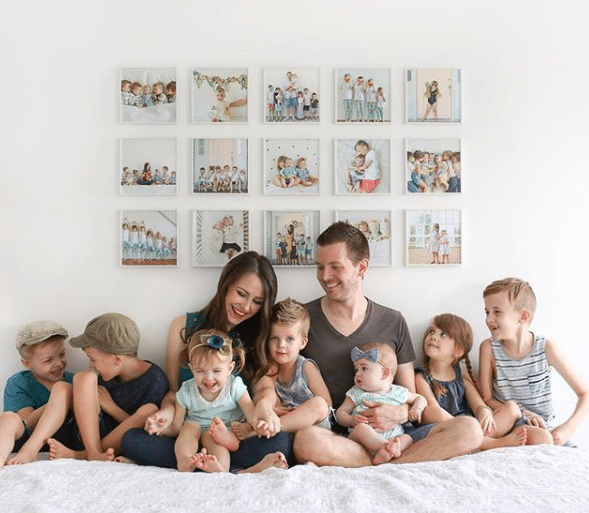Observers having been suggesting that large families are a new status symbol. “If you’re wealthy enough, four is the new three, and three is the new two.” Even Tina Fey pointed out the absurdity. One writer wonders if the Instagram influence is to blame for creating the aspirational image of the trendy big family.
“The Instagram world is a showcase of perfect mums who look like they have their act together, with a perfectly tidy house, immaculate lippy and a brood of gleaming children who have clearly been superglued to their chair to eat – normal children don’t sit still for photos.”
People are now reacting with praise to an op-ed by writer Mark Oppenheimer, who is having five kids.
We couldn’t help but notice what’s lacking in these promotions of large families: a consideration for kids’ needs. They also ignore the impact large families have on the environment and the future world all children need to thrive.
Research has shown that small families are better for children. Each additional child diminishes the amount of individual attention and investment that a parent can provide for the other children. Moreover, large families are the worst way to exacerbate climate change and other environmental crises. They ensure a future filled with more people competing for fewer resources in a degraded environment. Why do that to kids?
Thinking Beyond Ourselves
In an amazingly egocentric claim, Oppenheimer writes:
“…People should do what they want to do…And those of us who want five children should have them.”
Really? It is ok then to disregard the harmful impact we have on others? Is it fair for us to impose ourselves on others in that way? Do we owe something to all children in planning our families? Wouldn’t that recognizing that duty result in a better future for our own children?
There is a better way. We encourage all parents to consider how they can engage in more conscientious family planning by adopting the Fair Start model to reduce their impact on our already degraded environment, and give all kids a better shot at a more equitable future.
Smaller families working together to plan for and invest more in each child is, hands down, the most effective way to improve child welfare, reduce inequality, and restore our environment.
Let’s end the isolationist thinking in the act of planning our families that disconnects us from others in the world.

